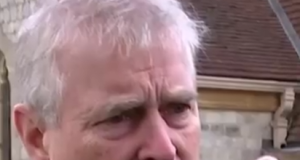A U.S. appeals court on Tuesday grilled an Obama administration lawyer about the legality of the continuing collection of millions of Americans' phone records, adding fuel to a debate that has raged since the spy program was revealed more than a year ago.
The 2nd U.S. Circuit Court of Appeals in New York was the first appellate court to hear arguments on whether the National Security Agency (NSA) program is lawful, in a lawsuit brought by the American Civil Liberties Union (ACLU) challenging the gathering of so-called metadata.
Judge Gerard Lynch, one of three judges who heard the arguments, said it was "hard for me to imagine" Congress had envisioned such a sweeping effort when it passed an expansion of anti-terrorism powers known as the Patriot Act after the attacks of Sept. 11, 2001.
Stuart Delery, a lawyer for the Justice Department, told Lynch in response that Congress was fully informed when it voted to reauthorize the Patriot Act twice.
The two other judges, Robert Sack and Vernon Broderick, also expressed skepticism about the program's legality, although it can be difficult to infer judges' eventual rulings from questions at oral argument. The panel could take several months to issue a decision.
In December, U.S. District Judge William Pauley of New York ruled against the ACLU, saying the program could prevent future attacks.
Pauley's ruling departed from an earlier decision by U.S. District Judge Richard Leon in Washington, who said the "Orwellian" program likely violated the U.S. Constitution's Fourth Amendment prohibition against warrantless searches.
An appeals court in Washington is scheduled to take up that case on Nov. 4, raising the possibility that the U.S. Supreme Court will eventually be asked to resolve the issue.
The spy program, which the government says is permitted under Section 215 of the Patriot Act, records phone numbers dialed as well as the time and duration of calls. Intelligence agents use the data to track a suspect's contacts, according to the government.
Former NSA contractor Edward Snowden's leaks revealed the program in June 2013, prompting an outcry from privacy advocates. In response, President Barack Obama has called on Congress to impose limits. Proposed legislation has not yet gone to a vote.
Alex Abdo, an ACLU lawyer, told the court the government's position represented a "road map to a world in which the government routinely collects vast quantities of information about Americans who have done absolutely nothing wrong."
"I don't think that's the world that Congress envisioned when it enacted Section 215, and it's certainly not the world that the framers envisioned when they crafted the Fourth Amendment," he said.
Lynch appeared sympathetic to that argument, saying the government's logic would likely allow the collection of bulk financial data and email records as well.
Delery emphasized the program had been vetted by all three branches of the government: Congress, the Obama administration and the specialized court in Washington that handles intelligence requests.




